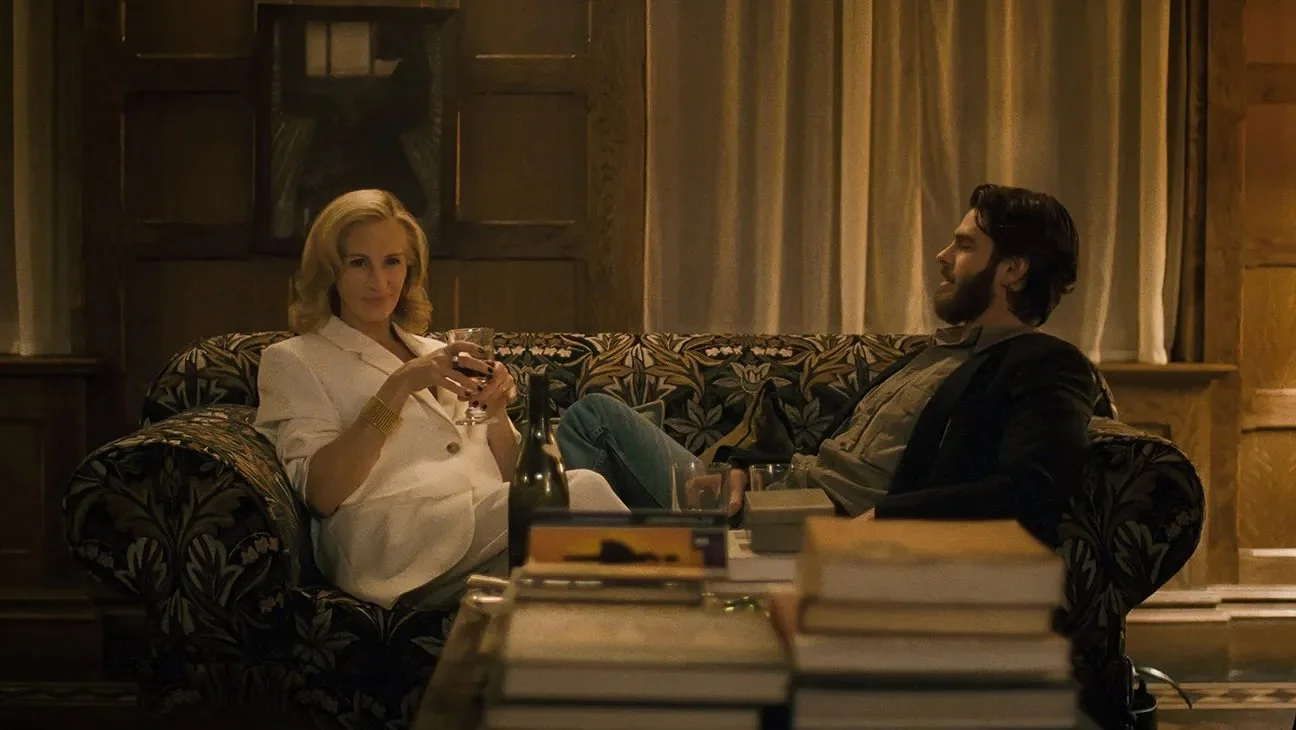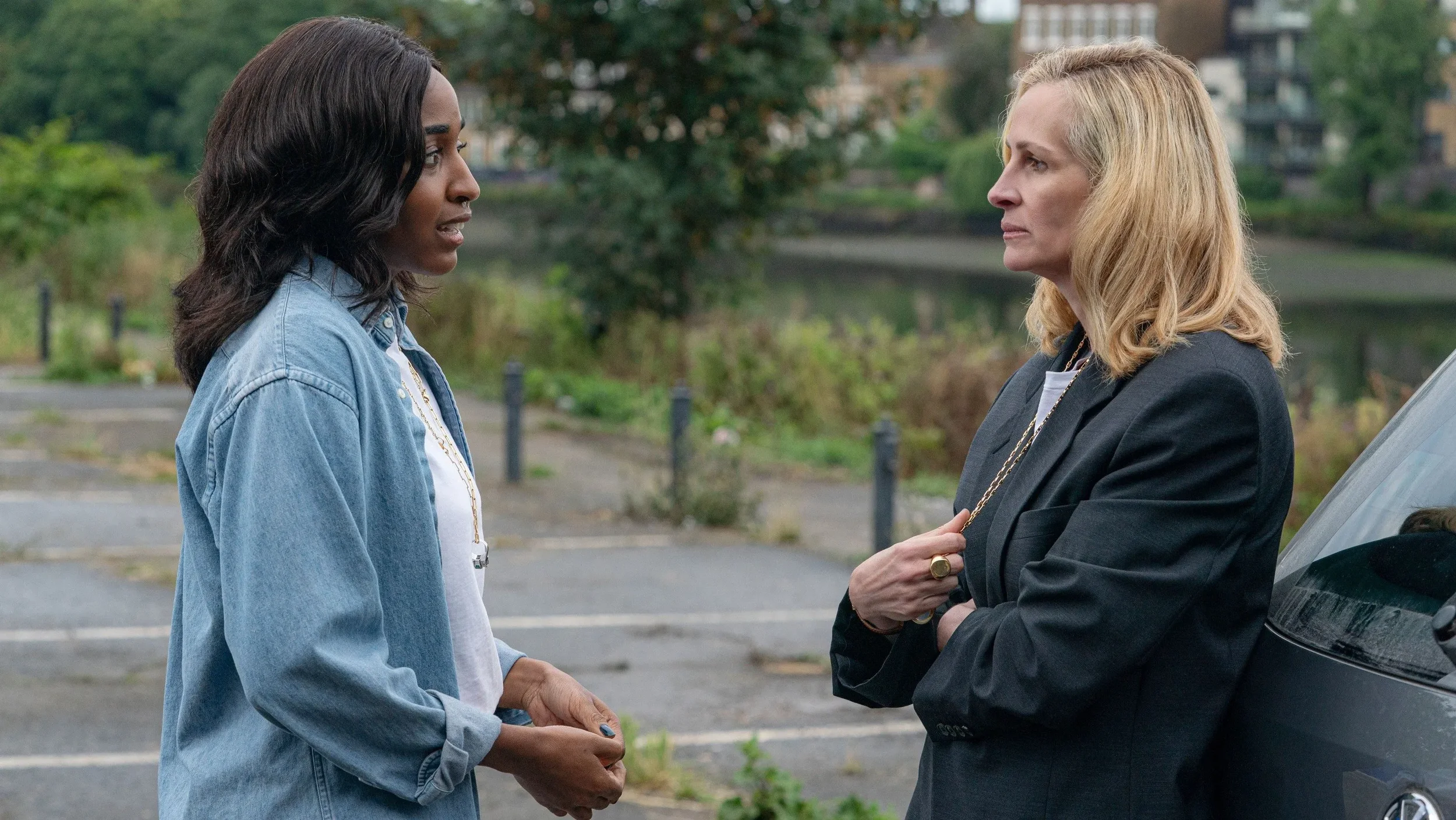After the Hunt: Guadagnino's latest gestures at but fails to achieve depth
It’s hard to find the through line in Luca Guadagnino’s recent output, which spans cannibal love stories, tennis love triangles, William S. Burroughs adaptations and the upcoming biopic on OpenAI CEO Sam Altman. Nestled in-between these is an enigma in the form of 2025’s After the Hunt. Aesthetically, the movie fits nicely within Guadagnino’s oeuvre of lush settings, photogenic actors and frenetic editing; in terms of the script, from first-time screenwriter Nora Garrett, it seems an odd choice for Guadagnino to attempt to intellectualize the #MeToo era discourse on American campus sexual assault.
Nevertheless, Garrett and Guadagnino shuttle us six years into the past at Yale’s campus, where Alma Imhoff (Julia Roberts) and Hank Gibson (Andrew Garfield; full name “Henrik” for maximum literary allusion) teach philosophy to eager undergraduates. There’s an undercurrent of tension between Alma and Hank—they’re both angling for tenure, but there’s also the sense that they have a shared past as something more than colleagues. Caught in their gravitational pull is PhD student Maggie Resnick (Ayo Edebiri), Alma’s protegée who not only models everything from her point of view to her clothes and mannerisms.
These fraught dynamics are stirred up at a salon-style dinner party hosted by Alma and her husband Frederik (Michael Stuhlbarg), which leaves everyone tongue-looseningly tipsy. (Having not attended an Ivy League, I consulted outsider sources who confirmed that yes, their professors did net 6-figure salaries and hosted lavish cocktail hours for students.) At the end of the night, Hank offers to walk Maggie home. The next day, Maggie tells Alma that Hank assaulted her; Alma is noticeably cold during this confession, and even more distant when Hank tells her his side of the story. She tries to avoid picking a side, which inevitably ends up alienating both Hank and Maggie from herself.
It’s a shame a movie with two excellent lead performances ensues so meanderingly. Garfield’s playing against type with Hank, embodying that one guy we all know who wears his Ralph Lauren shirts with too many buttons undone, who’s a little too free with his hands and a little too quick with an irreverent comment or philosophical devil’s advocacy. He has a gritty, frenetic energy that makes the stakes for his character that much more real, combined with a sleazy affect working against his belief in the injustice of his situation. But the movie dispatches Hank far too soon with an unceremonious firing—one which makes little to no sense given the reality of university bureaucracy and Title IX regulations—leaving the focus on Alma and Maggie.
Roberts is at least excellent as an enigma onscreen, playing a character with murky motivations and relationships steeped in subtext. Alma is hidden behind a strong poker face and an almost calculating unwillingness to reveal her inner thoughts, both at home and in the workplace. Her relationship with Frederik, played by Stuhlbarg as the long-suffering, oft-neglected husband catering to his wife’s lifestyle, simmers with resentment and unresolved conflict. More than anyone else in the movie, Frederik is just what he seems and shares without filter or patience what he thinks of the interpersonal dynamics that Alma so carefully navigates. Both Frederik and Kim—Chloë Sevigny, the no-bullshit university psychiatrist who Alma turns to for advice and exploits for pills—are a breath of fresh air in a movie that seems to think its characters are deeper than they really are.
Beyond Hank and Alma, Maggie hovers, a sketched-out shadow of a character. Early on we’re told she’s an academic nepo baby born of the blue-blood East Coast elite, with parents who’ve funded half of Yale’s campus. She’s gay and has a non-binary partner, a plot snippet seemingly added solely so Alma can misgender them (very “those Gen-Zers and their pesky pronouns”). She’s also a below-par student who’s plagiarized most of her dissertation—a fact Hank uncovers and confronts her about, adding another layer to her allegation against him, and one that Alma knows about but doesn’t report, adding another layer to her odd, psychosexual mentor-mentee relationship with Maggie.
It was hard for me to picture anything worthwhile coming from this premise, and what ensues is in fact a plodding relitigation of such first-Trump-presidency questions as “Should we always take survivors at their word?” and “What is privilege, anyway?” The movie gestures at bigger concepts, mysterious pasts and zoomed-in visual motifs that never go anywhere; its characters’ conversations are riddled with ham-fisted quotations of and references to Foucault, Hegel, virtue ethics, Freud and more, using the guise of intellectualism to convey the appearance of depth. After the Hunt might build a world of identity politics in ivory towers, but the ideas it raises about privilege and power are never explored in-depth.



Alix is the editor-in-chief for Hyperreal Film Journal. You can find her on Letterboxd at @alixfth and on IG at @alixfm.